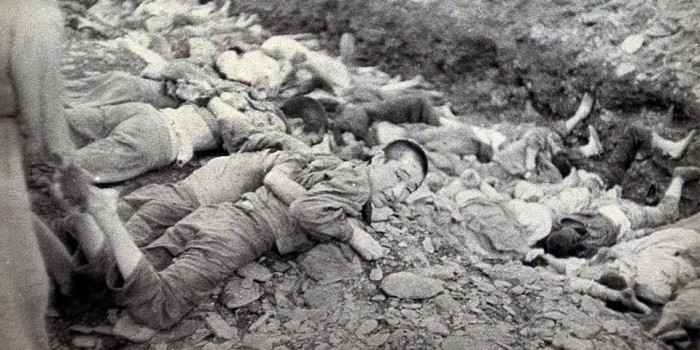About Korea, in Europe, as elsewhere in the world, we know only the “crimes” of the “dictator of North Korea, Kim Jong-un”, the latest being the gigantic hoax of the VX nerve gas used to kill his own brother and which has unleashed a new rantings on “Weapons of Mass Destruction”. Almost nothing, instead, is said about the crimes of South Korea and what happened during the Korean War – which has originated the two states, and that was the first war lost by the United States – over which has declined for decades a deathly silence.
Koreas war
Not a week goes by since 1950 that someone does not mention North Korea as the den of every anti-democratic and anti-humanitarian vice, as a kind of landmark of negativity, even if at this fixed point isn’t added any concrete information beyond the mythical Kim Il Sung or the launching of missiles officially deprecated by Washington, but actually welcome because it provides the opportunity to fill the area of anti-missile shields in an anti-Chinese function.
A perverse game in which those who will remain with the candle in hand will be tempted to set fire to the powder. Now, I do not believe that North Korea is the best of all the possible worlds, but I am surprised by the continued negative quotation, the act of unfaith to which no one escapes, while nothing is known about South Korea unless that it produces affordable cars, fancy mobile phones and household appliances: the southern part of the Korean peninsula, American colony by seventy years, is perhaps the paradise?
Not at all, in fact South Korea looks a lot like the northern sister, if not for the greater corruption and the psychological dependence on the USA, as could be seen by the decision of the Supreme Court of the country, which a few days ago has ruled the immediate impeachment of the President Park Geun-hye for extortion and abuse of power.
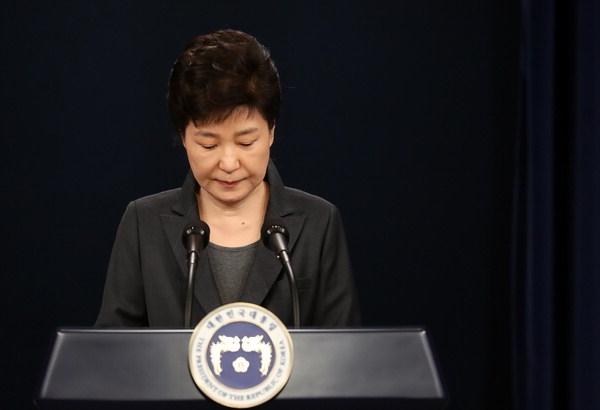
She is not just a “bad apple” who took advice for decisions and speeches by a shaman, Choi Soon-sil, who in four years has managed to rake nearly US$ 70 million in bribes: she was only unwise and ill recommended in milking the vast system of corruption that rules the country and in which the big industrial groups pull the strings. Enough to say that the head of the most important complex of the country, Samsung, is under investigation for having bankrolled the president with stratospheric sums in order to get the facilities they wanted. And the same thing was done also by other major manufacturing groups.
These facts fall into a period of great tension and it is perhaps for this reason that we could read a few full articles on the matter, and not just some short blurbs, but the story of Park Geun-hye is but the latest chapter in a story of South Korea, where democracy has always only been a mere formality. From 1948 to 1960 the country was governed with dictatorial powers by Syngman Rhee that, apart from the habit of slamming in life-long term jail MPs who voted against him, was not spared with massacres and bloodsheds to suppress popular uprisings of the “communist” even before the war. Impossible to count the total victims, but we know those of the single massacre of the Island of Jeju, where 14,000 people were slaughtered. The fact was that the Korean people wanted to go to polls to elect a sole president for the whole country, but the US lords and “president” Rhee preferred a divided country for a simple evidence: a united Korea would be fatally communist and under the influence of China.
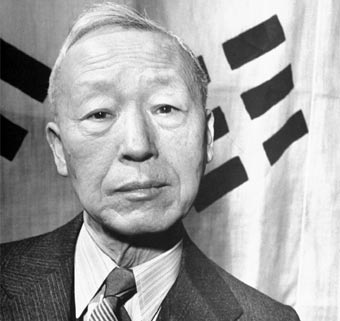
Deposed in 1960 because of the popular uprising called “Revolution of April” and led by students, he was replaced through a military coup by another autocrat, General Park Chung-hee, a character who had begun his military career alongside the Japanese with whom he fought, who was later arrested by Rhee for suspected communism and freed only after the sale of the names of the companions, and finally began a miraculous climb to high degrees only after a period of “training” at Fort Still in Oklahoma. Soon after coming to power he founded a secret service, the KCIA (“Korean CIA”) – just to clarify the things – and while inaugurating his corrupt regime, he dedicated to the purges of opponents and his own friends. Between 1963 and 1973, he was very grateful to his puppeteers sending 320,000 soldiers and 100,000 “civilian advisers” in Vietnam to fight alongside the Americans, receiving in exchange tens of billions of dollars in subsidies, technology transfer and preferential commercial treaties, thus triggering the production start-up of the country. A takeoff that internationally was absolutely necessary in the context of the Cold War, since until then North Korea was much more industrialized of the South, having inherited the Japanese industrial and chemical plants in addition to receiving technological help by USSR, China and DDR. It must be said, incidentally, that even now, though it’s ignored by the vast majority, the North Korean economy is lively enough: it is the 9th world producer of fruit, the 15th of fluorite, 12th of copper as well as magnesite and graphite, has significant mechanical and electrical products and a GDP growing between 1.5 and 4% per annum. However General Park Chung-hee, who ruled thanks to emergency decrees dating back to the War, not hesitating to resort to torture or imprisonment without trial, was assassinated by the head of the KCIA and replaced by General Chun Doo-hwan, also trained in the US and whose only notable act consisted in the “Gwangiu massacre”, where 1,000 students were slaughtered in 1980. The story continues with a series of characters who have done nothing but “improve” the system of corruption in the country.
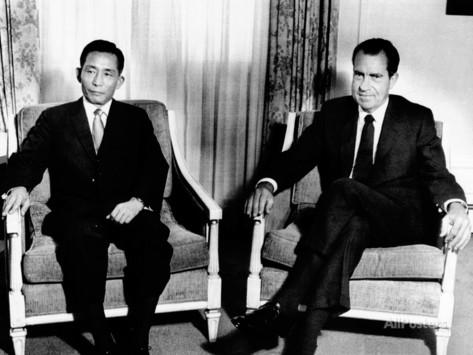
And finally we get to Park Geun-hye, daughter of the autocrat Park Chung-hee, just a simpleton caught with her hands in the cookie jar.
Korea, the forgotten war
On the morning of November 4th, some 66 years ago, the tenth Marine Corp began, along with all the US eighth Army, a hasty retreat to avoid being surrounded by the Chinese thirteenth Army, and with the extreme value that distinguishes the US, the Commanders sent a turkish regiment to sacrifice self in order to give time to the american soldiers to take away from the Yalu River’s bag. It’s not hard to understand why the Korean War is almost immediately entered in a kind of limbo memory: neo-imperial America doesn’t befit to tell too much the first real direct loss against the troops of the newly founded People’s Republic, nor the fact that eventually a compromise was reached just to avoid a nuclear conflict since the inability to resolve the matter by conventional means.
However it is not the fought War that I would like to mention in this article. At the Cairo Conference the Allies with the addition of China agreed on the independence of Korea, which for 70 years was occupied by Japan. But already after the end of the War it became clear that the agreement was short-lived: the Russians coming down from the north and the Americans going up from the south met around the 38th parallel giving rise to a “de facto” partition that was believed it could be resolved through the good mediation of the UN. It was not the case because the Cold War did not allow the election of a Unity Government, but in fact from the beginning, as early as September 1945, General John Hodge, the newly appointed military governor, said that Korea should be considered an “Enemy” of the United States due to the presence of many communist militants. Therefore, as a representative of the so-called “field of freedom”, prepared the partition before restoring the power of the previous Japanese hierarchy, then putting together a sort of democratic parody with the establishment of the “Korean Advisory Council” to which was called to join an overwhelming majority of landowners, businessmen, officials of the japanese former colonial regime.
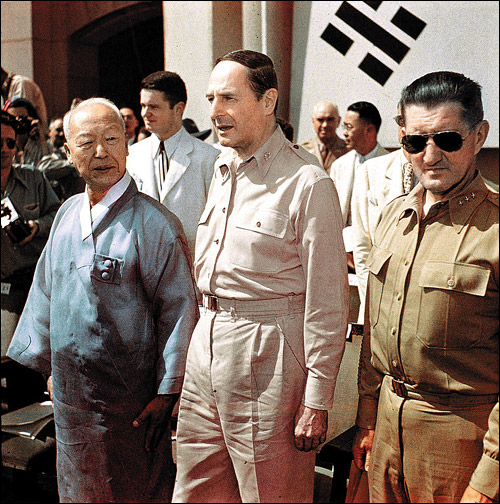
From this sort of monster remained outside in block the members of the PRK, which is the Korean provisional government, the only ideally right in its legitimacy, but which the rest of the military government accused of “suspicion communism”. From this “Council” in August 1948 originated an absurd South Korean government, led by President dictator Syngman Rhee, nationalist raised in Washington, who refused to made the unification and instead began the repression of communists. This thing a month later led to the declaration of indipendence of the DPRK. In short, the division of the country had been pursued since the early days on account of the strategic and ideological interests of Washington, even at the cost of restoring to power the same ruling class of Japanese colonialism. Something that also happened in the rest of Europe and the World, in partially different forms. Looking on Korea, we find that the mold just reviewed, updated and adapted to the new realities has been applied and is still applied in the Middle East, South America, Ukraine, Balkans, Africa.
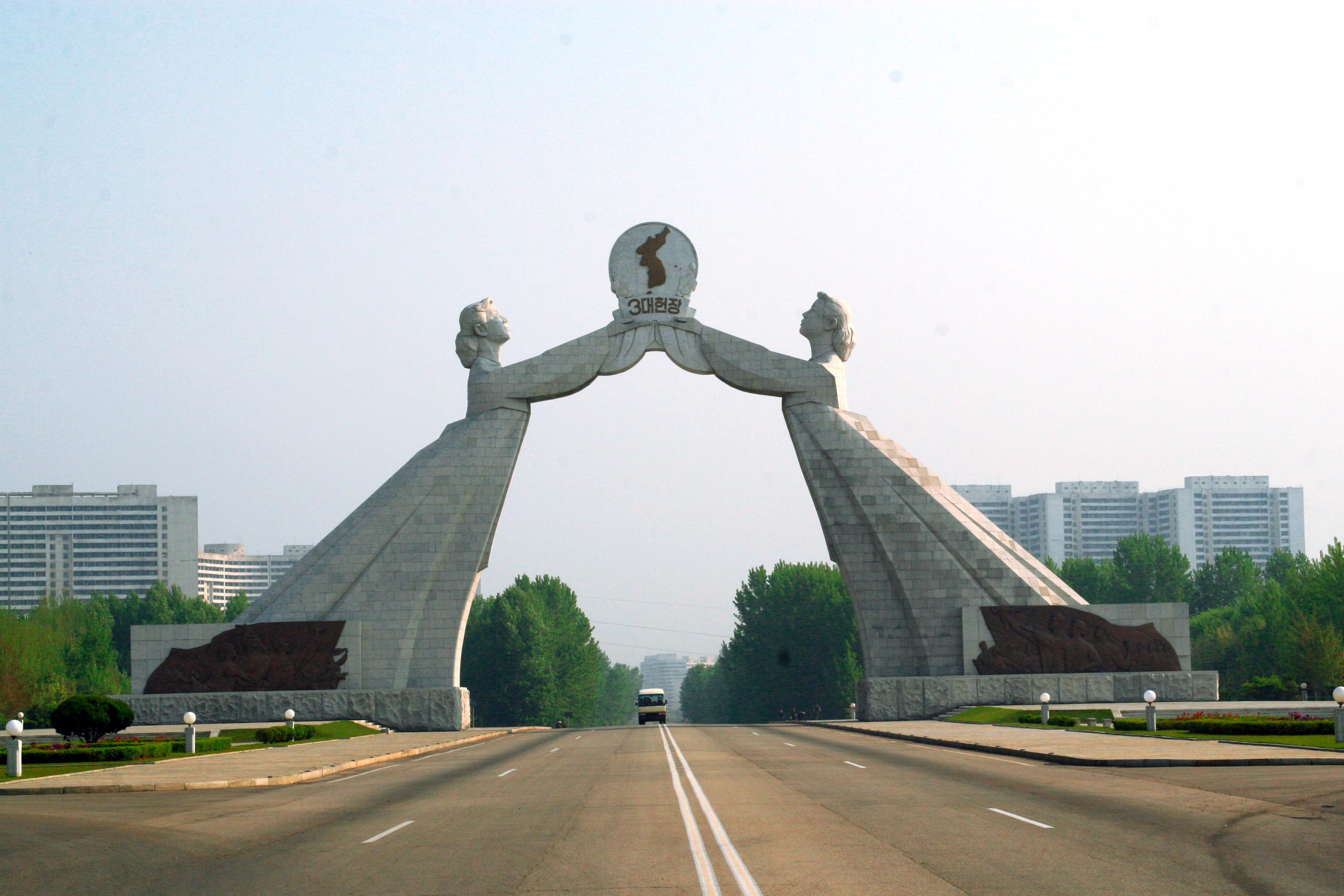
If we could read all the post-war chronicles, it would be clear that the whole narrative of the Korean affair is interpreted in the light of a self-styled freedom and democracy when in fact it was simply a replacement of Master, seasoned with American colonial sauce.
Source: L’antidiplomatico
